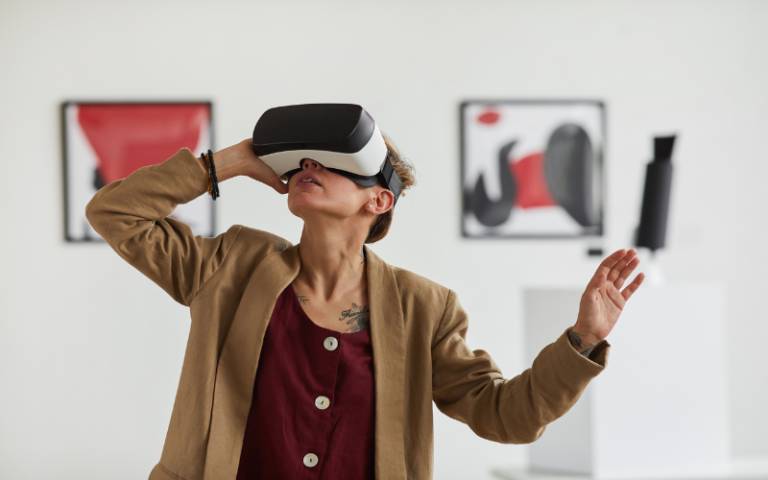Researchers at UCL will use a virtual reality game to assess how well people navigate their surroundings to try and spot early signs of Alzheimer's disease.

The new study is recruiting healthy volunteers over the aged over 40 to play a game called the 'Cave Crystal Quest' for two 90-minute sessions at the UCL Institute of Cognitive Neuroscience in London.
In the first session, participants will play the game while wearing virtual reality goggles. They must complete several levels by exploring a cave and finding a hidden crystal. They will then be asked to complete a questionnaire about their experiences and how easy they found it to navigate the game.
In the second session, the participants will complete written questionnaires about their cognitive abilities. Researchers will compare these questionnaires with the data collected on their ability to navigate in the first session.
Data from the study will be used to determine a person's ability to navigate. The researchers hope that similar virtual tests could be developed to help clinicians to assess the early stages of Alzheimer's dementia by revealing problems with navigation, such as difficulty following a route or getting lost.
The study's chief investigator, Professor Neil Burgess, Professor of Cognitive and Computational Neuroscience at UCL, said: "Problems with navigation such as getting lost or struggling to follow directions may be nothing to worry about, but they can be an early sign of Alzheimer's dementia. Finding a way to assess these problems at an early stage could help us diagnose and track the progress of the condition in a less invasive way than with current tests.
"We are excited at the potential that this game - and virtual reality -more broadly might have for assessing the cognitive impact of Alzheimer's disease."
Previous evidence shows that early signs of Alzheimer's disease can show up in a person's ability to navigate*.
A common symptom of Alzheimer's disease is feeling 'lost' even in familiar places. This is especially true of people aged 65 and over in the early stages of the disease.
In this study, researchers are using a virtual reality game to attempt to measure how well people can keep track of where they are and how well they remember where they have been.
Study lead, Dr Andrea Castegnaro (UCL Institute of Cognitive Neuroscience), said: "We are developing innovative, cross-cultural tests to identify specific errors in spatial navigation that could signal early cognitive decline due to Alzheimer's dementia."
The Virtual Reality Navigation Study is recruiting 50 participants through Join Dementia Research and is funded by the Wellcome Trust.
In order to take part, participants must not have any pre-existing cognitive impairments or be taking medication for a mental health condition.






